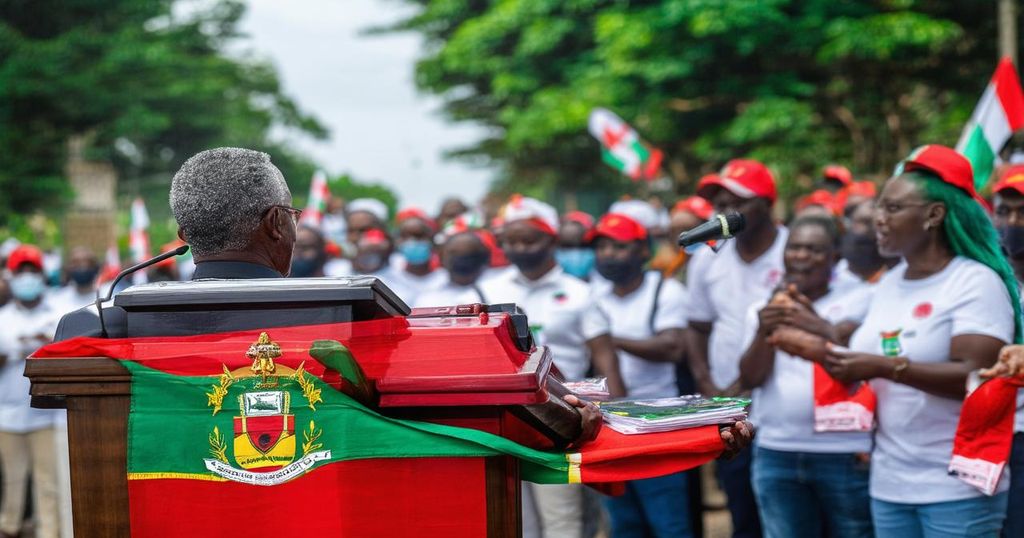Mozambique’s ruling Frelimo party has declared its candidate, Daniel Chapo, the winner of the presidential election with over 70 percent of the votes, amid claims of electoral fraud by opposition leader Venancio Mondlane. The political climate has intensified with protests, calls for change, and accusations of violence against opposition members leading up to the polls.
Mozambique’s ruling party, Frelimo, has announced that its presidential candidate, Daniel Chapo, has won the recent elections with over 70 percent of the votes, as confirmed by the National Election Commission (CNE). This declaration comes amidst allegations of electoral fraud from opposition groups, primarily from the independent candidate Venancio Mondlane, who claims that he was the rightful winner of the election. Mondlane, who received more than 20 percent of the votes, has called for nationwide protests against the ruling party, emphasizing a desire for change in a nation that has been under Frelimo’s governance since independence from Portugal in 1975. The context of these elections is further complicated by a history of political violence, with the recent killings of two opposition officials highlighting the tense atmosphere leading up to the polls. As Chapo prepares to officially take office in January, the political landscape in Mozambique remains fraught with controversy, with claims of fraud, police suppression of protests, and international observers citing irregularities in the electoral process.
The political environment in Mozambique has been dominated by the Frelimo party for nearly fifty years, following the country’s independence from Portugal in 1975. Frelimo’s continuing rule has been marked by persistent allegations of election rigging, which the party has consistently refuted. Daniel Chapo, the newly declared president at the age of 47, will make history as the first leader born after Mozambique gained independence. The opposition is represented by figures such as Venancio Mondlane, who has openly challenged the election outcomes, claiming electoral manipulation. The tensions have escalated following the violent deaths of opposition supporters, stirring public unrest and accusations directed at security forces regarding their involvement in the violence. The recent electoral process has been characterized by accusations of suppression by the ruling party and concerns raised by international observers regarding the integrity of the votes counted, setting a complex stage for Chapo’s upcoming presidency.
In summary, the recent elections in Mozambique have resulted in significant controversy surrounding the legitimacy of the outcomes declared by the National Election Commission. Daniel Chapo’s win with an overwhelming majority is overshadowed by claims of electoral fraud from the opposition, leading to calls for protests and raising concerns about political violence and suppression by state forces. As Mozambique prepares for Chapo’s inauguration, the ongoing disputes reflect a deep-rooted struggle for power and accountability within its political framework, casting a shadow over the nation’s democratic processes.
Original Source: www.aljazeera.com






